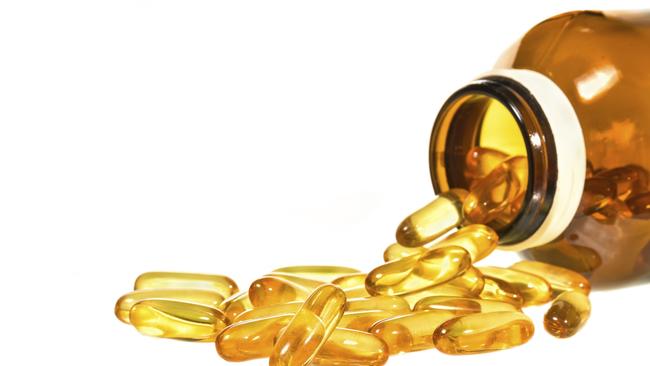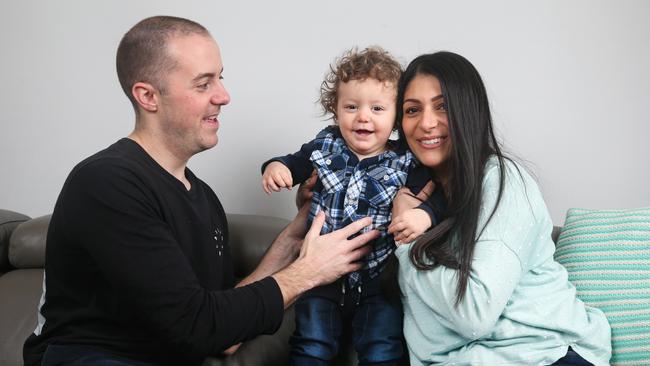Thousands of babies will be given vitamin D drops in a bid to beat the allergy epidemic
THOUSANDS of Victorian babies will be given a daily drop of vitamin D in their first year of life in a world-first trial aiming to prevent food allergies.
VIC News
Don't miss out on the headlines from VIC News. Followed categories will be added to My News.
THOUSANDS of Victorian babies will be given a daily drop of vitamin D in their first year of life in a world-first trial aiming to prevent food allergies.
The Murdoch Children’s Research Institute trial will test whether a lack of the vitamin, which is found in some foods and sunlight, could be triggering Australia’s allergy epidemic.
DAIRY FARM DUST PREVENTS ALLERGIES IN KIDS
WHY WE’RE AT HIGH RISK OF VITAMIN D DEFICIENCY
AUTISM LINKED TO LACK OF VITAMIN D WHILE PREGNANT
While the exact cause of the increase in food allergies is not known, MCRI Professor Katie Allen said research suggested low vitamin D may increase the risk of food allergies.
“Australia has one of highest rates of food allergies in the world and we think one of those reasons may be a lack of vitamin D,” Prof Allen said.
.

There is evidence that childhood food allergy is more common in countries further from the equator, suggesting that exposure to sunlight may play a role.
Babies who are allergic to peanuts and eggs are also more likely to have a vitamin D deficiency.
“In North America and Europe they both supplement babies with drops and fortify the food supply with the vitamin,” she said.
Prof Allen said the large randomised control trial — the gold standard of medical research — will provide the first evidence on whether the intervention was effective.
Half of the 3000 babies in the trial will be given a tiny drop of vitamin D and the other half will receive a placebo.
“We expect it to be safe,” Prof Allen said. “Millions of babies in the US and Europe have received it, but we just don’t know if it’s effective.”
Babies aged 6-8 weeks, who are primarily breastfed, will be recruited for the trial.
When the child turns one they will be given a free allergy test at the Royal Children’s Hospital.
Chris and Lia Duke enrolled their 16-month-old son Spencer in the trial.
“I thought it was a good opportunity to help prevent other children from getting food allergies,” Mrs Duke said.
A skin prick test indicated their son may be allergic to peanut and coconut, but further tests proved negative.

“It was such a relief because it meant we didn’t have to avoid those foods while we waited for tests and Spencer was about to start childcare, so it was really reassuring information to have,” she said.
Prof Allen said she did not want parents to start giving their babies vitamin D because the quality of store-bought vitamins was highly variable and the effective dose was not known.
The Camberwell Rotary Annual Art show on Monday, July 9 will raise money for the trial and the Ilhan Food Allergy Foundation will match money raised up to $50,000.
To take part in the trial: www.mcri.edu.au/vitality


